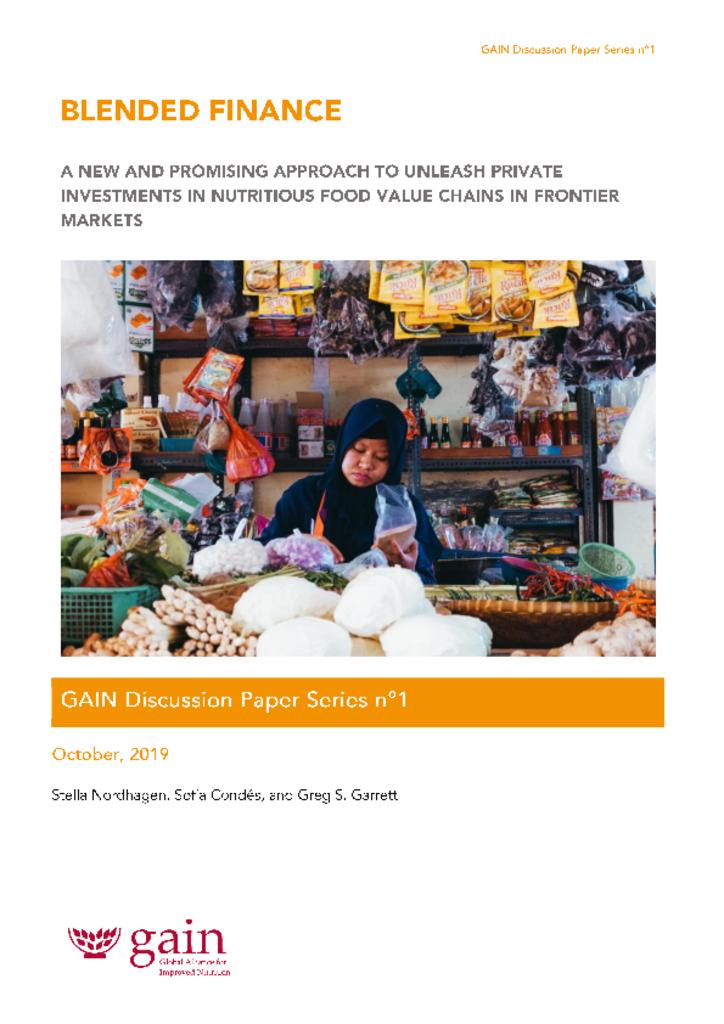Small and medium-sized enterprises (SMEs) are central to low- and middle-income country (LMIC) food systems and have the potential to increase local accessibility (availability and affordability) of nutritious and safe foods. However, lack of access to finance is often a major constraint on the growth of food system SMEs.
This paper argues that private capital has considerable potential to fill this financing gap and discusses promising approaches – particularly blended finance – to unlock more investment in and technical support to SMEs working in nutritious food value chains.
First, we summarise the challenges with investing in SMEs within nutritious food value chains and why traditional financing models are unlikely to meet the sector’s needs.
Next, we discuss different financing models, highlighting blended finance as a promising approach that uses capital from mission-driven investors to mitigate risk and thereby attract more commercial investment in food system SMEs. Capital made available via blended finance mechanisms—combined with technical assistance—has been enabling other sectors to improve impact. It could also help food system SMEs provide more safe and nutritious foods to consumers who need them most.
Third, we demonstrate that existing food and agriculture funds rarely target improved nutrition.
Finally, we note key actions that need to be undertaken in order to make blended finance for SMEs in nutritious food value chains more common, including creating clear parameters of nutritious foods as an investment ‘theme’ and metrics to assess the potential impact of investments.
We hope that this paper challenges the nutrition community to engage with the financing sector to further explore and develop options for financing to improve nutrition and help define and validate appropriate definitions and metrics.
